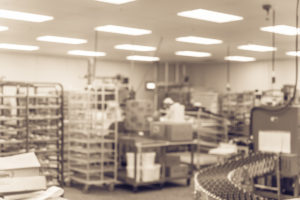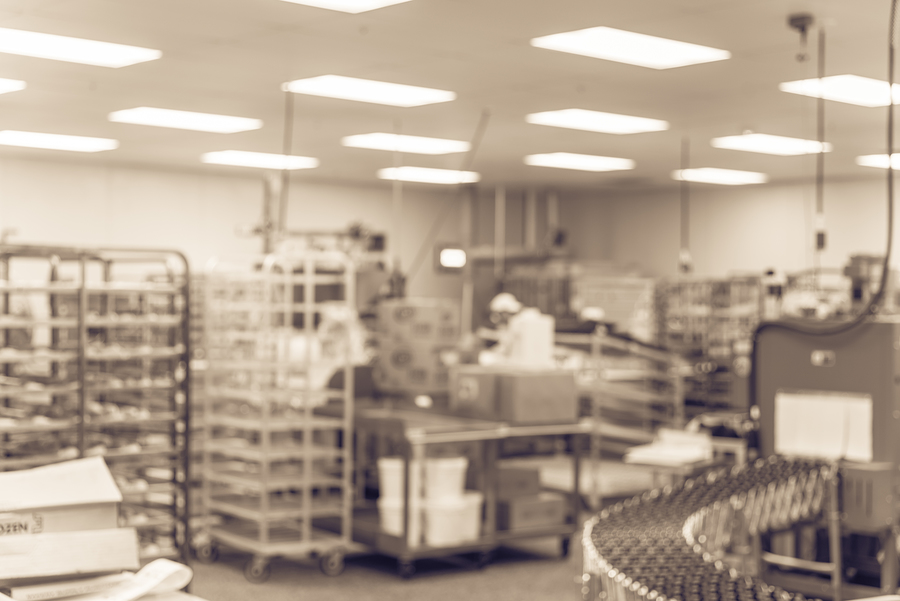 Almost 800,000 jobs power the baking industry, and there could be up to 20% additional job openings by 2025. That’s a lot of helping hands to hire in an industry that’s already struggling to fill in workforce gaps.
Almost 800,000 jobs power the baking industry, and there could be up to 20% additional job openings by 2025. That’s a lot of helping hands to hire in an industry that’s already struggling to fill in workforce gaps.
Because of the nature of the industry and the complexity of its labor challenges, it’s not an issue that can be solved overnight. But there are many things bakery manufacturers can do to ensure production keeps moving, even when times are tough.
Retain existing employees
Turnover is expensive. It takes significant time and resources to onboard and train new workers, and that’s after going through the process of finding, screening, and interviewing them. If a company’s workforce is already tight, the last thing they want is to lose existing employees.
There are many reasons employees might consider moving on, including:
- Lack of advancement opportunities
- Lack of compensation and benefits
- Difficult hours or excessive overtime
- Challenging relationships with coworkers
- Lack of support from leadership
- Long commutes
- Hazardous workplace conditions and/or strenuous tasks
- Feeling disengaged, dispensable, and undervalued
Workers may be willing to stay if they know their company is willing to work on solving these issues. After all, switching jobs isn’t easy for employees either.
A good start is to create a company culture that’s committed to continually improving occupational safety. Building such a culture with employee input can ease fears about accidents and injuries on the job. And, with the help of technology and scheduling software, managers can better distribute the work so that no individuals feel stressed and stretched thin.
Companies that also offer continuing education opportunities can help their employees develop the required skills and qualifications to move into higher-level positions. But even employees who have already advanced in the company (e.g. front-line leaders) will need ongoing supportive resources, recognition, and growth opportunities to stay connected.
And while it’s possible to teach employees new skills via technology (e.g. virtual reality, augmented reality, and tablet-based training modules), it’s also important that they learn alongside experienced workers. This helps them build confidence in their work and establish positive relationships with peers. And a strong sense of community in the workplace will encourage employees to stay on board for the long haul.
Attract new, skilled workers
The same factors that encourage current employees to stay are also going to draw in new workers. Things like ongoing training and development opportunities, perks and benefits, and a good work-life balance will interest applicants who are looking for a stable career in the industry.
But even if the job has all these perks and more, it can be a struggle to find candidates who are not only interested in applying, but have the skills necessary to do the job well. This is where it may be helpful to reach out to potential applicants while they’re still planning their futures.
With the rise of technology and automation in the industry, many manufacturers are challenged with filling positions that require mechanical skills. In 2016, 78% of baking companies were experiencing a shortage of engineering and maintenance employees, and they expected this to continue to be a critical need in the industry.
Students in these fields, however, are probably not thinking of the food industry when planning their careers. They may not even be aware of how much the industry needs their skills. Outreach efforts and career discovery programs may help get the word out to high schools, training centers, and universities about the variety of positions available in food manufacturing.
For those students who show interest, it may be worth investing in formal training programs to help them acquire the specific skills necessary for the industry. Baking manufacturers may also offer internships and on-site training opportunities to supplement the courses.
Add more automation
Although installing automation equipment often calls for new types of employees, the benefits are worthwhile, particularly when it comes to tackling labor shortages.
Automated production machinery allows manufacturers to have fewer employees on the line, which is especially advantageous for tasks that are repetitive, difficult, or dangerous. These are the same jobs that cause employees to burn out. And employees who become stressed, injured, and fatigued are more likely to leave as soon as a better opportunity arises.
With machines doing these challenging jobs:
- Employees avoid the heavy lifting and hazardous conditions that lead to injuries
- The company is able to minimize the human mistakes that cause product loss and food safety risks
- Workers won’t be stuck doing monotonous, mechanical work and can direct their expertise toward high-value tasks
The end result is improved product quality and consistency, increased productivity along the line, and the ability to use a limited workforce more efficiently. The best part is the machines keep running even when employees call in sick and the company’s experiencing turnover.
Partner with industry experts
Filling in employment gaps and adopting automation can take time. But in the interim, production still has to keep running smoothly.
It may be helpful to rely on suppliers, equipment manufacturers, and other outside experts for guidance and support during this time. This is especially true for small businesses with limited resources.
OEMs and their distributors, in particular, can offer support for planning equipment and facility upgrades, servicing and repairing existing equipment, and training new hires. They often have access to the latest technology and are backed by a team of skilled engineers, mechanics, and programmers. Your suppliers may also have new ideas for expanding your business, as well as different strategies for dealing with workforce limitations.
While current labor challenges may seem colossal, some creative thinking, technology, and support from other industry professionals will go a long way toward winning the battle. Contact us to learn how Naegele Bakery Systems can support your business with automated equipment and industry expertise.

